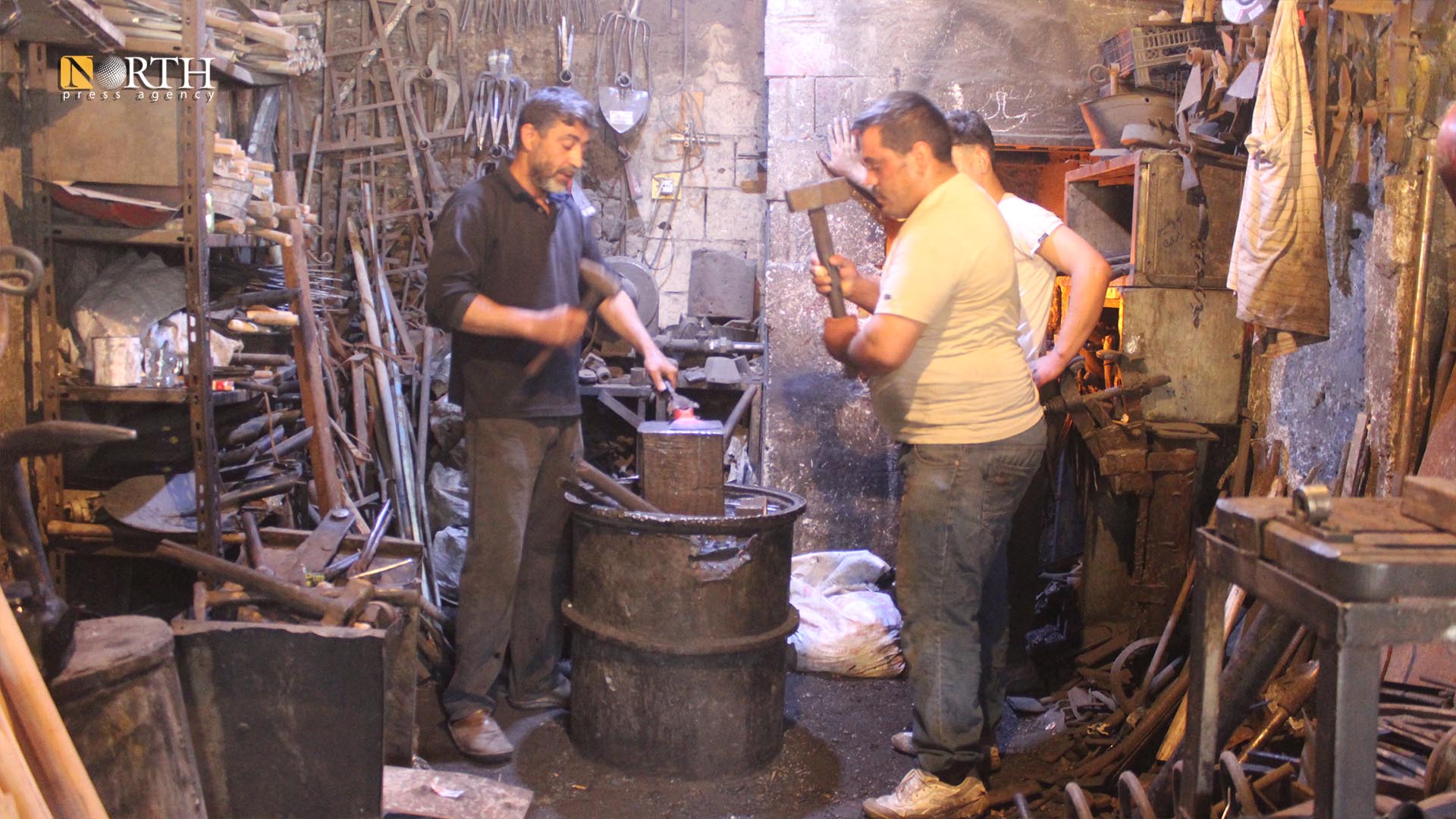RAQQA, Syria (North Press) – Abdulaziz al-Mattar, a blacksmith in the city of Raqqa, northern Syria, puts a piece of steel in a primitive forge until it turns to red before striking it with large hammers, still filled with pride over the profession that he has practiced for two decades.
He makes plows and sickles for sale, along with other agricultural tools and maintenance supplies.
Those who practice traditional handcrafts, including Arabic blacksmithing, still receive customers in al-Quwatli Street, the oldest market of Raqqa.
Al-Quwatli Street is also called the “eastern market,” as it was located in the eastern vicinity of the city before it began to expand rapidly over the past few decades.
Al-Mattar inherited this craft from his father and spent more than two decades working in his blacksmithing workshop in Raqqa, which has been owned by his family since the 1970s.
Recycling
Al-Mattar makes plows, small harrows, hammers, sickles, and other metal tools used in agriculture or construction.
Despite the big developments in metallurgy, especially in the manufacture of agricultural tools, there are still many people who come to his workshop to buy the tools he makes.
He usually obtains damaged metal parts such as car springs and iron bars, so his work also recycles materials that are no longer usable.
The work is done by heating the metal until it becomes malleable, and his hammers turn the metal into the tool requested by the customer.
The blacksmith uses coal and an electronic heater to ignite the forge and heat the metal pieces to shape them again according to the tool he wants to manufacture.
Solid products
Al-Mattar describes his crafts as “authentic,” adding, “I have a number of customers in other areas like Hasakah and Deir ez-Zor.”
Muhammad al-Ali, a farmer from the eastern countryside of Raqqa, choses a number of plows he uses on his land.
“The farmers like to buy tools made in the Arabic blacksmithing workshops as they are solid and long-lasting, whereas the imported tools are made from the iron which is mixed with sand and are easily broken,” he told North Press.
The prices of the tools that the blacksmith makes in his workshop vary according to their type and weight. However, their prices are still less expensive than the imported devices, which are usually priced in dollars.
Inherited craft
Yusuf al-Khidr, a resident of Raqqa, said he “smells the past” when he sits in these workshops, “maybe because they are the only thing left of ancient Raqqa and its memories.”
Al-Khidr sometimes sits for a long time in the workshop and tells those present there about his memories of when his father accompanied him there thirty years ago. He hopes that this craft will not vanish, as it represents a part of Raqqa’s heritage, much of which was destroyed and forgotten during the war years.
Al-Mattar takes his son to the workshop every day to learn the handicraft, and although it is a stressful profession, he says that it has a “special taste” only for those who work in it or love it.

